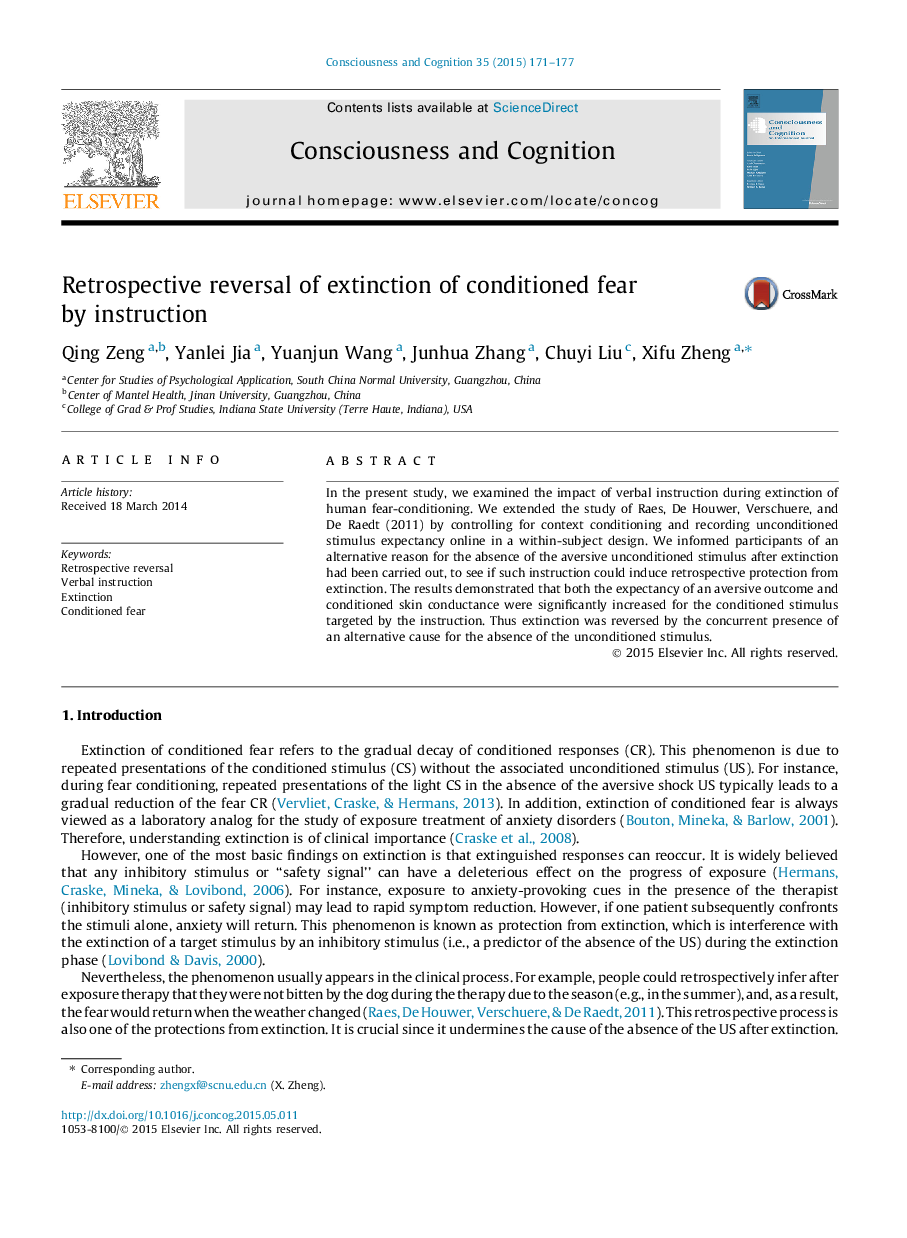| Article ID | Journal | Published Year | Pages | File Type |
|---|---|---|---|---|
| 7289326 | Consciousness and Cognition | 2015 | 7 Pages |
Abstract
In the present study, we examined the impact of verbal instruction during extinction of human fear-conditioning. We extended the study of Raes, De Houwer, Verschuere, and De Raedt (2011) by controlling for context conditioning and recording unconditioned stimulus expectancy online in a within-subject design. We informed participants of an alternative reason for the absence of the aversive unconditioned stimulus after extinction had been carried out, to see if such instruction could induce retrospective protection from extinction. The results demonstrated that both the expectancy of an aversive outcome and conditioned skin conductance were significantly increased for the conditioned stimulus targeted by the instruction. Thus extinction was reversed by the concurrent presence of an alternative cause for the absence of the unconditioned stimulus.
Keywords
Related Topics
Life Sciences
Neuroscience
Cognitive Neuroscience
Authors
Qing Zeng, Yanlei Jia, Yuanjun Wang, Junhua Zhang, Chuyi Liu, Xifu Zheng,
